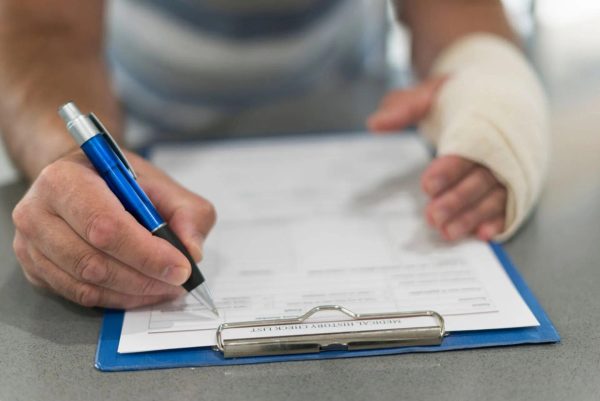In the event of an accident or injury caused by the negligence of another person, it may be a complex and challenging procedure to bring a personal injury claim. One factor that can further complicate matters is the presence of pre-existing medical conditions.
A pre-existing condition refers to a health problem or injury that occurred before the accident or incident that led to your personal injury claim. It may be anything from a previous back injury to a chronic disease such as arthritis or diabetes. If you’ve had it before, it’s considered pre-existing.
In this article, we explore the world of personal injury claims and settlements, focusing in particular on how pre-existing conditions play a role.

How Pre-Existing Conditions Impact Your Claim?
A pre-existing condition refers to any disease, illness, or injury that existed before the accident or incident that caused your current injury. These conditions may include chronic diseases such as diabetes or arthritis, as well as previous injuries or disabilities. Having a pre-existing condition can affect your personal injury claim and potential settlement.
Here’s how:
Exacerbation of Pre-Existing Conditions:
If your current injury worsens a pre-existing condition, you may still be entitled to compensation.
However, determining the extent of the exacerbation can be tricky and may require medical experts to weigh in.
Aggravation of Symptoms:
Even if your pre-existing condition wasn’t directly worsened by the accident, the symptoms could still be aggravated.
For example, a minor car accident might exacerbate existing neck pain from a previous injury, leading to increased discomfort and medical bills.
Attributing Damages:
Insurance companies may try to attribute some of your damages to your pre-existing condition, arguing that they’re not solely responsible for your current condition.
This can result in lower settlement offers if not handled correctly.
Expert Opinion:
According to a renowned personal injury specialist, “Assessing the impact of pre-existing conditions requires a thorough understanding of both the patient’s medical history and the specifics of the accident. It’s crucial to consult with medical professionals who can accurately evaluate the situation.”
Strategies for Handling Pre-Existing Conditions
To increase your chances of a successful personal injury claim and maximize your potential settlement or award, consider the following strategies:
1. Be Transparent and Provide a Complete Medical History
It’s essential to be fully transparent about any pre-existing conditions from the outset of your claim. Withholding or concealing this information can damage your credibility and potentially undermine your case.
2. Seek Experienced Legal Representation
Hire a lawyer or a law firm with extensive experience dealing with personal injury claims involving pre-existing conditions. Their expertise can be invaluable in dealing with the complexity and presenting your case in the best light. Explore ConsumerShield for details to get legal advocacy and support to ensure that your rights are protected and that you receive fair compensation.
3. Gather Comprehensive Medical Evidence
Work closely with your medical providers to obtain detailed records, diagnostic tests, and expert testimony that demonstrate the impact of the accident on your pre-existing condition. Also, seek help from medical professionals who can advocate for your rights and provide expert testimony if needed.

4. Be Patient and Persistent
Personal injury claims involving pre-existing conditions can be lengthy and complex. Patience and persistence are key as you navigate the legal process and negotiations with insurance companies or opposing parties.
Frequently Asked Questions
Can I still file a personal injury claim if I have a pre-existing condition?
Yes, you can still file a claim. However, the presence of a pre-existing condition may impact the outcome and settlement amount.
Will my pre-existing condition affect my chances of receiving compensation?
It may affect the compensation amount, but having a pre-existing condition doesn’t necessarily disqualify you from receiving compensation altogether.
What should I do if the insurance company denies my claim due to a pre-existing condition?
Consult with a personal injury attorney who can review your case and advocate for your rights. Insurance companies often use pre-existing conditions as a reason to deny claims, but with proper representation, you may still be able to secure compensation.
Conclusion
The handling of personal injury claims and settlements in the event of pre-existing conditions can be a complex and challenging process. However, if you have the right legal representation, thorough medical evidence, and a clear understanding of the legal system, you can increase your chances of receiving fair compensation for your injuries and losses.
Remember, if you have a pre-existing condition, it doesn’t mean you’re out of luck when it comes to seeking compensation for injuries.
If you stay informed, seek professional advice, and document everything, you will be able to deal with the complexities of personal injury law and secure the compensation you deserve.





